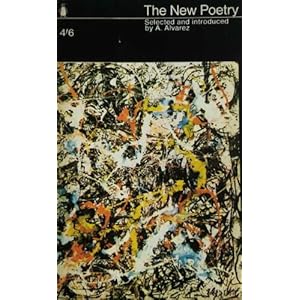سکوت خوابهای زیادی دید
(The opening line, in Farsi, of ‘Letter’, by Azita Ghahreman)
How does a poem contain more than one language? It’s a
question that fascinates me, and has done for a long time – because it’s to do
with the fabric of language itself: how a poem operates both within and beyond
the locus of its particular vocabulary (English, Farsi, or whatever it may be).
The ‘auditory imagination’ – Eliot’s term for the capacity of poetic language
to bend biological time, and fold together the most primordial and the most
evolved elements of our being – unites the human species across its cultures,
too: not only reaching back to our origins, but to the other possibilities
latent in our own tongue. In the poems I write, I actively court the sense that
words in English are brushing up against – or even generating – another,
unknown language, at once inherent within and completely alien to my own.
One way to become more aware of this supra-verbal component
of poetry is to listen to verse in languages you don’t understand – with or
without accompanying translations. Last night I went along to a reading of
Persian poetry – part of a tour organised by the excellent Poetry Translation Centre, led
by Sarah Maguire, and hosted in Birmingham by Writing West Midlands. Happily,
the format allowed Farsi and Dari – Persian cousins, linguistically – to be
heard alongside their translations into English, setting up a charged space
between those languages and my own. That’s a sweet spot for the kind of
experience I describe. Knowing no Farsi or Dari myself, I could let the
recitations wash over me with a kind of pre-conscious pleasure – having only their sound to know them by – before
(or after) I heard the translation that I would understand. I had a similar
experience at the Strokestown Poetry Festival in 2005, where I fell in love
with the verve of Scottish Gaelic, as read there by Meg Bateman,
Rody Gorman and Aonghas MacNeacail (and which left me with a still-unfulfilled
craving to get to know that language better.)
Azita Ghahreman, an Iranian poet now living in Sweden, read
first, with Sarah Maguire reading Maura Dooley’s tender translations of her
work. I noticed the prominence of certain sounds in Farsi – ahr / ohr / ehsht /
at / dz, for example – and was struck by the sense of loss, and calling, as
well as an allure, in Azita’s reading (which put me in mind of the Portuguese saudade, and the German sehnsucht). It had the authentic aura of
invocation. Shakila Azizzada, originally from Afghanistan and now based in the
Netherlands, read in Dari, which seemed to carry a different kind of insistence
to Farsi – an earthy authority, compared to Farsi’s more aerial appeal. There
was one sound – a fusion of ‘j’ and ‘sh’ – which I noticed acted as a hinge in
many phrases. Mimi Khalvati read the translations she had made of Shakila’s
poems, to quietly forceful effect. Finally, Sarah Maguire read her own deft translations
of Partaw Naderi’s work – another Afghan poet – who was originally scheduled to
have read at the event. Listen for yourself: a selection of fine pieces from
each of these poets – both in English and in their original language – is
available to hear and to read through the website of the Poetry Translation Centre. (They are also published in attractive chapbooks.)
In exposing the audience to the frequencies of verse drawn
from experiences distant from those of most Britons, the readings last night also
galvanised a sense of what is at stake in the work of all three poets: utterance
as the mark of survival, and how poetry’s rare sensitivity, articulate
complexity – and its very vulnerability – are the foundations of its resilience.
The imaginative access that authentic poetry embodies is anathema to tyranny
and censorship: as the unique signature of individual experience, it is also
the signature of political and intellectual freedom.
Anglophone culture has become somewhat accustomed to living
with the lazy notion of the ‘language barrier’ as an insuperable divide,
because there is presently so little general pressure on its constituents to
learn other languages. But events like last night’s reading of Persian poetry suggest
that the language barrier need not be a political barrier (and vice versa). On
the contrary: it becomes apparent that such barriers are illusory. Hearing the
poetry of another language opens a channel to your own. For me, hearing Farsi
and Dari poetry brought home once again the overwhelming importance of the
vowel, as the breath of a poem, that
makes its body flex and stir: just as in English. You can hear the musical
resources of your own language – its possibilities – all the more vividly for
hearing poetry at work in another language. It flips the more familiar levels
of our receptivity to language, and reveals something universal, playing upon
the fact that our bodies are, through and through, organs of communication –
and the way any voice reaches beyond the individual, seeking, as if with a life
of its own, to form a new bond in another body and mind.
